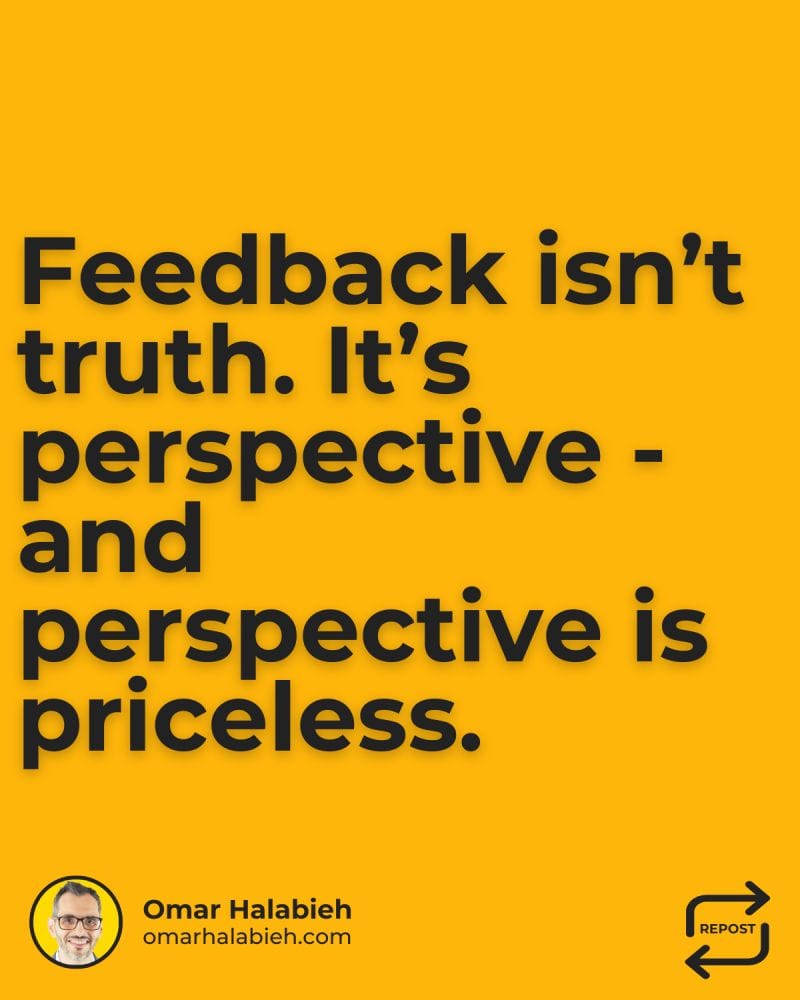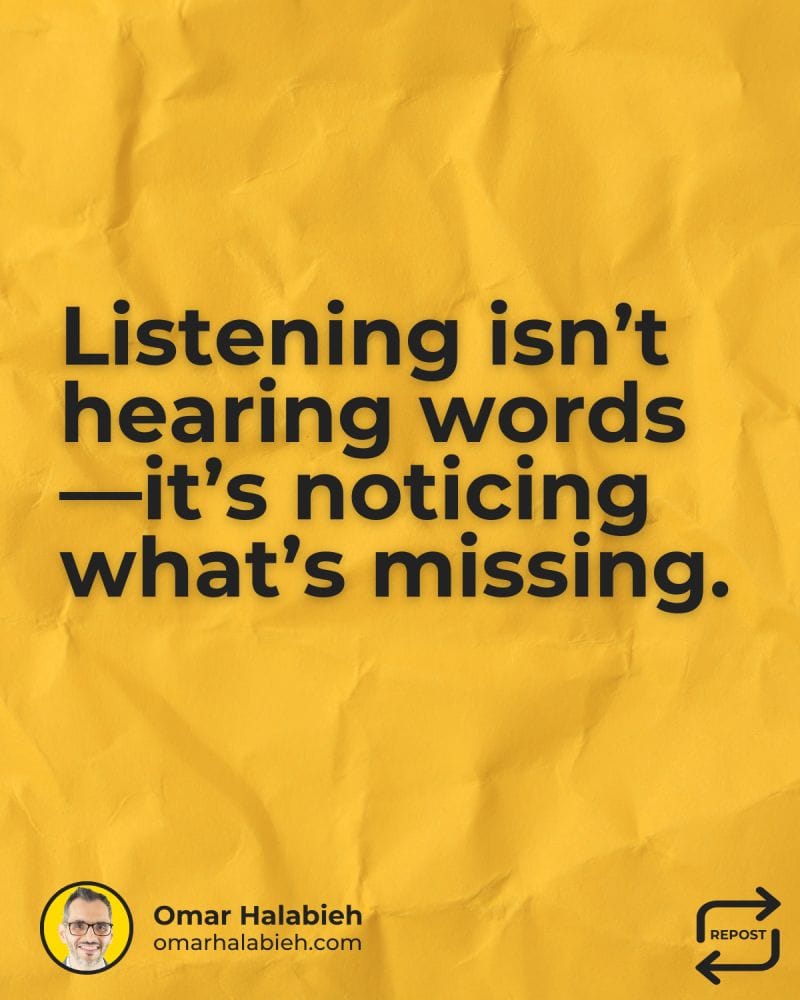Everyone Talks About How to Give Feedback,
But Few Explain How to Receive It.
4 proven tips to gracefully accept the gift of feedback (scripts included):
1/ Listen Actively. Be Curious, Not Defensive.
Why: Active listening allows you to fully understand the feedback without getting defensive. By approaching feedback with curiosity, you demonstrate your willingness to learn and gather more information to better understand the other person's perspective.
How: When receiving feedback, maintain eye contact, nod to acknowledge understanding, and wait until the person has finished speaking before responding. "Thank you for sharing your thoughts on my presentation. I'm curious to learn more about your perspective. Can you elaborate on the areas you think need improvement and what advice you have on how I could approach these differently?"
2/ Seek Diverse Perspectives.
Why: Gathering feedback from multiple people provides a more comprehensive view of your strengths and areas for improvement. You can see if there are things that many people mention and you can understand how different people see your work.
How: After receiving feedback on risk management from one person consider reaching out to others for additional insights on the topic. "I'm looking to improve the quality of my risk management and reporting within my program. Do you have any feedback or advice for me in this area? Your input will help me de-risk execution and provide more accurate representation to stakeholders."
3/ Take Time to Process and Reflect.
Why: Taking time to process feedback allows you to manage your emotional response and consider the input objectively. It enables you to identify key takeaways and develop a plan for implementing changes.
How: "I appreciate your feedback on my communication style. I want to take some time to reflect on your suggestions and consider how to incorporate them into my interactions with the team. Can we schedule a follow-up meeting next week to discuss my action plan?"
4/ Express Gratitude and Close the Loop.
Why: Expressing gratitude shows that you value the person's time and effort in providing feedback. Following up shows that you are serious about using their feedback to grow.
How: "Thank you for sharing your feedback on my project estimations. Your feedback on factoring dependency review timelines has given me valuable perspectives to consider. I'm grateful for your support and guidance. Attached is the revised proposal based on your suggestions. I welcome any additional feedback you may have."
PS: Feedback is not all-or-nothing. Even if you don't agree with everything, there's usually something valuable to take away.

